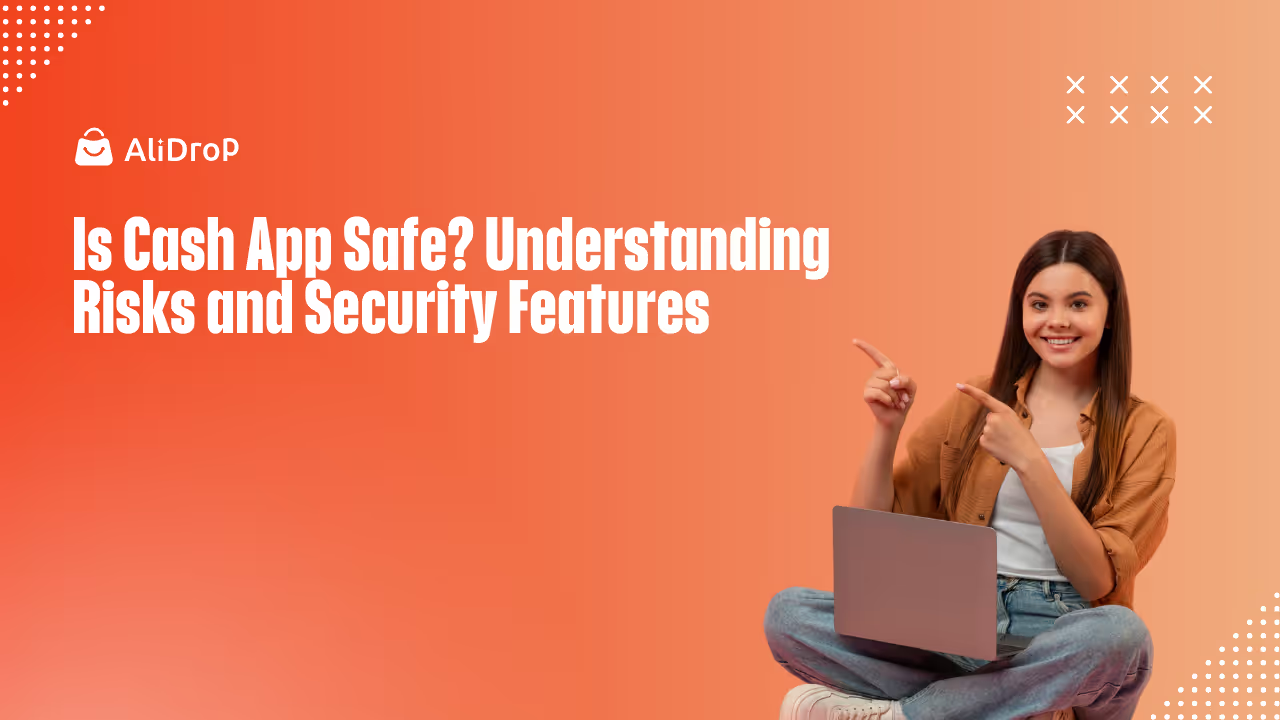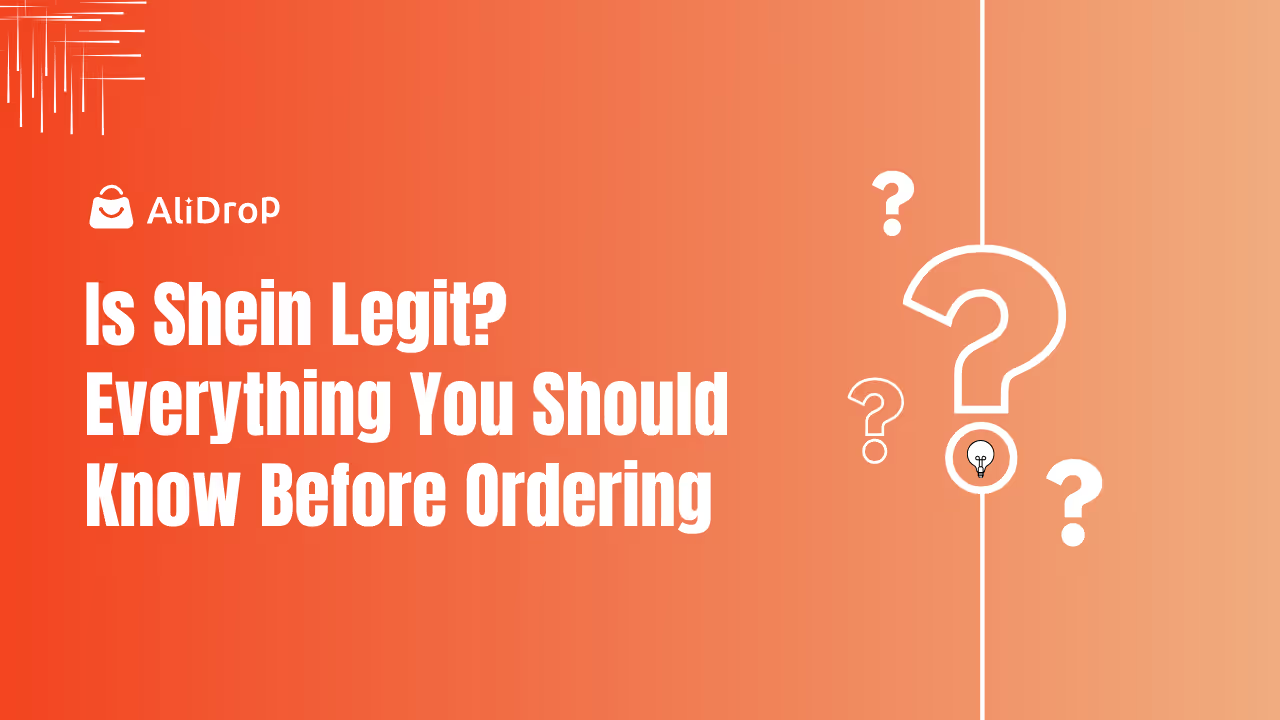Have you received an email from Facebookmail.com and wondered if it’s legitimate? You're not alone. With the rise of phishing attacks, it's essential to know how to differentiate between a genuine Facebook email and a scam. Emails from Facebookmail.com can be authentic, but scammers often use similar addresses to trick you into compromising your security.
This blog will help you determine whether Facebookmail.com is legit or just another attempt to steal your information. We’ll guide you through the signs of Facebookmail.com phishing emails, how to verify Facebookmail.com recovery codes, and much more. Stay informed and protect yourself from Facebookmail.com spoofing and Facebook email scams.
.avif)
What is Facebookmail.com?
If you’ve ever received an email from facebookmail.com, you may have questioned its legitimacy. Let’s break it down so you can easily identify whether the email is real or a scam.
Facebookmail.com is the official domain used by Facebook to send emails to its users. Emails sent from addresses like notification@facebookmail.com, security@facebookmail.com, or noreply@facebookmail.com are legitimate and come directly from Facebook's servers. These emails are primarily used to keep you informed about your Facebook account—such as security alerts, password changes, login attempts, and updates about friend requests and settings.
Common Uses for Facebookmail.com Emails
You might receive emails about:
- Security alerts (e.g., password resets or suspicious login attempts)
- Account recovery codes and Facebook Protect emails
- Friend requests, messages, and group updates
- Notifications about changes to your settings
- Reminders for birthdays or events
These emails help you stay on top of your account and ensure its security. In case you're ever locked out of your account, these emails will guide you through the recovery process. With phishing scams on the rise, knowing how to spot legitimate emails from Facebookmail.com is crucial for protecting your account.
Why Facebook Uses This Domain for Communication
Facebook uses facebookmail.com to provide a secure and reliable channel for official notifications. This makes it easy for you to identify authentic updates and avoid falling for Facebookmail.com phishing scams. If you receive an email from a different domain claiming to be Facebook, it’s a red flag.
How Does Facebookmail.com Work?
Let’s break down how this domain operates so you can confidently spot real Facebook emails.
Types of Notifications Sent
Facebookmail.com handles all of Facebook’s email notifications. These emails include:
- Security alerts, password reset requests, and login notifications
- Facebook Protect emails and account recovery codes
- Friend requests, event reminders, and updates about your Facebook mail inbox
With the increase in phishing scams day by day, this makes it even more important to recognize legitimate emails from Facebookmail.com.
Official Email Addresses Used by Facebook
Facebook uses a few official email addresses to maintain consistency:
- notification@facebookmail.com: For standard updates and friend requests
- security@facebookmail.com: For security alerts and recovery codes
- noreply@facebookmail.com: For automated messages that don’t require a response
Other addresses you might see include support@meta.com or advertise-noreply@facebookmail.com, which are used for business or support-related topics.
How to Spot Legitimate Facebook Emails
You can spot legit mails from Facebook with the help of following examples.
- A password reset email from security@facebookmail.com is a real Facebook security email.
- A login notification from notification@facebookmail.com is legitimate.
- Event reminders usually come from noreply@facebookmail.com.
These official addresses help you identify Facebookmail.com legitimacy and protect yourself from Facebookmail.com phishing and spoofing attempts.
What to Do If You're Unsure
If you're ever unsure about an email:
- Don’t click any links in the email.
- Log in to Facebook directly and check your notifications or recent emails in your Facebook mail inbox.
This simple step ensures that any Facebook account recovery email or Facebook Protect email is verified, keeping you safe from scams.
Is Facebookmail.com a Trusted Source for Communication?
Wondering, "Is Facebookmail.com legit?" The short answer is yes—Facebookmail.com is a trusted source for official Facebook communication. Facebook uses this domain to send important notifications, security alerts, password resets, and updates. However, with the rise of phishing scams, it's crucial to know how to distinguish between real and fake emails from Facebook.
Legitimacy of Facebookmail.com
Facebookmail.com is the official domain for Facebook’s notification system. Emails from addresses like:
- notification@facebookmail.com: For standard updates
- security@facebookmail.com: For security alerts and password resets
- noreply@facebookmail.com: For automated messages
These are legitimate emails sent directly from Facebook. Security experts recommend checking the sender’s address and looking for your Facebook ID in the email for extra assurance. If you're ever unsure, log into your Facebook account and visit the “See recent emails from Facebook” section in your security settings. If the email is listed there, it's verified as genuine.
How Facebook Protects User Communication
Facebook employs advanced security protocols like SPF (Sender Policy Framework) and DKIM (DomainKeys Identified Mail) to authenticate its emails. These measures prevent Facebookmail.com spoofing and help ensure your inbox remains safe from fraud. Additionally, Facebook uses two-factor authentication and sends Facebook Protect emails to high-risk accounts (like those of journalists and public figures) to add an extra layer of security. You can cross-check any Facebook security email or Facebook Protect email within your account settings for further verification.
Differences Between Official and Spoofed Emails
Official Facebook emails never ask for your password or sensitive information. They don’t include suspicious attachments or rush you into taking immediate action. In contrast, fake emails often contain:
- Spelling mistakes
- Suspicious links
- Sender addresses that resemble, but don’t exactly match, Facebook’s official ones
Always check the full sender address and inspect the email’s metadata or headers for authentication details like SPF and DKIM records. A tool like EasyDMARC dkim lookup can help you quickly verify whether an email’s DKIM records are valid. If something seems off, avoid clicking any links and delete the email immediately.
Is security@facebookmail.com Legit?
If you receive an email from security@facebookmail.com, you might wonder, "Is this legit?" The answer is yes—security@facebookmail.com is an official Facebook security email. Facebook uses this address to send important security alerts about your account, such as password resets, suspicious login attempts, or Facebook Protect emails.
When Facebook Uses This Address
Facebook sends emails from security@facebookmail.com when there’s a need to inform you about changes related to account security. You’ll receive notifications for things like:
- Password reset requests
- Suspicious login attempts
- Security notifications related to your Facebook account
These emails are vital for keeping your account safe. However, always verify their authenticity and utilize email verifier tools, as Facebookmail.com phishing attempts are on the rise.
Risks of Email Spoofing and How to Stay Safe
Despite security@facebookmail.com being a trusted source, scammers often spoof this address to trick users into revealing personal information. To stay safe:
- Check the sender’s address: Verify that it matches the official domain.
- Don’t click suspicious links: Instead, visit Facebook directly.
- Verify recovery codes: Use Facebook’s account recovery email process or check your Facebook mail inbox for any alerts.
If you're ever unsure, log in directly to Facebook and check for any notifications in your account.
Is noreply@facebookmail.com Safe?
Emails from noreply@facebookmail.com are typically sent for automated notifications like event reminders, friend requests, and status updates. But, how do you confirm if they are safe?
Typical Messages Sent from noreply Addresses
Facebookmail.com uses noreply@facebookmail.com to send messages that don’t require a response. These can include:
- Friend requests
- Event invitations
- Group notifications
These emails are generally safe, but it’s still important to be cautious.
How to Confirm Authenticity
To confirm if the noreply@facebookmail.com email is legit, follow these steps:
- Don’t click any links: Instead, visit Facebook directly to check for any updates.
- Check for consistency: Ensure the message matches the type of notification you’d expect to receive.
- Look for inconsistencies: Be wary of suspicious attachments or requests for personal info.
If you have any doubts, you can always verify the email by logging into your Facebook account and checking the Facebook mail inbox.
How to Identify a Legitimate Facebookmail.com Email
When you receive an email from Facebookmail.com, you may wonder, "Is this legit?" It's crucial to know how to identify a legitimate Facebookmail.com email, as phishing attacks are becoming increasingly common. Here’s a simple guide to ensure the email is from Facebook and not a scam.
Check the Sender’s Email Address
The first step is to verify the sender's email address. Facebookmail.com is the official domain Facebook uses to communicate with users. Common legitimate emails will come from:
- notification@facebookmail.com
- security@facebookmail.com
- noreply@facebookmail.com
If the sender's address looks suspicious or doesn't match the official Facebook domain, it could be a phishing attempt.
Look for Personalization and Account-Specific Details
Legitimate Facebookmail.com emails will always include personalization. You should see:
- Your name or Facebook ID in the greeting
- Account-specific details, such as recent activity or security alerts
These personal touches confirm the email is tied to your account. A generic greeting or lack of specifics is a red flag.
Secure Links and No Requests for Sensitive Info
Real Facebookmail.com emails will never ask for sensitive information like your password, credit card, or Social Security number. Always check the links in the email. If they look suspicious or lead to a non-Facebook website, do not click on them.
For instance, official Facebook account recovery emails will direct you to Facebook's website, not third-party sites. Always hover over the links to check if they lead to a secure Facebook URL.
Signs of a Fake Facebook Email
Even if an email looks like it came from Facebookmail.com, some signs can help you spot a fake one. Scammers are getting more sophisticated, but these key indicators can help protect you.
Suspicious Sender or Domain Variations
Phishing emails often use addresses that look similar to Facebookmail.com, but with slight variations. For example, security@facebookmailo.com or support@fbmail.com. Always verify the domain carefully.
Urgent or Threatening Language
A common tactic in phishing emails is to use urgent language like "Immediate action required!" or "Your account will be locked unless you act now!" Facebook will never pressure you into acting immediately. Always take a moment to evaluate the email.
Spelling and Grammar Errors
Fake emails often contain spelling mistakes or awkward phrasing. Facebook emails are professionally written and error-free. If the email has noticeable errors, it’s likely a scam.
Unexpected Attachments or Requests for Passwords
Be wary of emails that contain unexpected attachments or ask for your password. Facebook will never ask you to send your password via email. If an email makes such requests, it’s definitely a scam.
.avif)
How to Spot Phishing Attempts in Facebook Emails
Phishing scams are on the rise, and Facebookmail.com phishing is no exception. Scammers use fake emails that look like they come from Facebook to steal your personal information. It’s important to know how to spot these phishing attempts to protect your account. Let’s dive into how to check the legitimacy of Facebook emails and take action when you encounter suspicious messages.
How to Check If a Facebook Email is Real
If you’re unsure whether an email from Facebookmail.com is legitimate, follow these steps to verify it.
Steps to Verify in Your Facebook Account Settings
- Check your recent notifications: Log into your Facebook account and visit the Security Settings. Look for any recent emails or alerts that match the message you received. If it doesn’t appear there, it’s likely fake.
- Check for personalization: Official Facebook emails usually include your name or account-specific details. A generic greeting, like “Dear User,” can be a red flag.
- Verify the links: Hover over any links in the email to see if they lead to a secure Facebook URL (e.g., facebook.com). Avoid clicking any suspicious links.
Using Facebook’s Security Features
Facebook offers security features like two-factor authentication and Facebook Protect to keep your account secure. If you receive a suspicious email related to account security, you can cross-check it with Facebook’s official notifications or use the Facebookmail.com recovery code feature to reset your account details securely.
What to Do If You Receive a Suspicious Email
If you receive an email from Facebookmail.com and suspect it's a phishing attempt, here's what you should do.
Do Not Click Suspicious Links
Phishing emails often include links that lead to fake login pages designed to steal your credentials. Never click on any links or download attachments from suspicious emails. Always go directly to Facebook’s official website by typing the URL into your browser.
How to Report Phishing to Facebook
If you receive a phishing email, report it to Facebook. You can forward the email to phish@fb.com, and Facebook will investigate it. This helps protect others from falling victim to similar scams.
Actions to Take to Secure Your Account
- Change your password immediately if you think your account may be compromised.
- Enable two-factor authentication for extra protection.
- Review recent activity in your Facebook mail inbox and security settings to check for any unauthorized actions.
- Log out of all sessions on Facebook to ensure no one else has access to your account..
Facebook Email Security Features You Should Know
Facebookmail.com is the official domain used by Facebook for notifications and security updates. Here's what you should know to keep your account secure.
1. Two-Factor Authentication and Recovery Codes
Two-factor authentication (2FA) adds an extra layer of protection by requiring a second verification step. Facebookmail.com recovery codes are also sent to help you regain access if your account is compromised.
2. Facebook Notifies You of Security Issues
Facebook sends security alerts via official Facebook emails, like security@facebookmail.com. These include notifications for suspicious logins, password resets, and Facebook Protect emails.
3. Access Your Facebook Mail Inbox
Your Facebook mail inbox is where you’ll find security alerts, friend requests, and other updates. Always check your inbox directly to verify any recovery codes or alerts.
Common Pitfalls and How to Avoid Them
Here we will discuss some common mistakes usually done by users and how to avoid them.
Mistakes Users Make with Facebook Emails
Following are some common mistakes that users make
- Clicking on suspicious links: Always hover over links to ensure they lead to facebook.com.
- Ignoring sender verification: Only trust emails from official Facebookmail.com domains.
- Not enabling 2FA: Activate two-factor authentication for added security.
Best Practices for Email Security
Follow the practices mentioned below for your email security
- Check the sender’s address: Ensure it's from Facebookmail.com.
- Never share sensitive info: Facebook won’t ask for your password via email.
- Enable Facebook Protect: Extra security for high-risk accounts.
By following these steps, you can avoid Facebookmail.com phishing and scams.
Final Verdict: Is Facebookmail.com Legit or Not?
Facebookmail.com is legitimate. It’s Facebook’s official domain for security alerts, password resets, Facebook Protect emails, and other notifications. However, phishing scams are common, with scammers spoofing this domain to deceive users. To stay safe, always check the sender’s address, avoid clicking on suspicious links, and ensure the email is personalized. Enabling two-factor authentication adds an extra layer of protection. Regularly review your Facebook mail inbox to verify any alerts or recovery codes. By staying vigilant, you can confidently trust Facebookmail.com while protecting yourself from Facebook email scams and phishing attempts.
FAQs About Facebookmail.com Legitimacy
Is Facebookmail.com a real email domain?
Yes, Facebookmail.com is a real and official email domain used by Facebook to send notifications and security-related emails.
What is the official email address for Facebook?
The official email addresses for Facebook typically include notification@facebookmail.com, security@facebookmail.com, and noreply@facebookmail.com.
Does Facebook notify you by email?
Yes, Facebook sends notifications by email for account activity such as password resets, security alerts, and updates about your account.
How do I know if an email from Facebook is legit?
To verify if an email from Facebook is legitimate, check the sender’s address for facebookmail.com, look for personalization, and avoid clicking on suspicious links.
What should I do if I receive a suspicious email from Facebook?
If you receive a suspicious email, do not click any links. Log into Facebook directly, check for notifications, and report the email to phish@fb.com.
What is securityfacebookmail recovery code?
A securityfacebookmail recovery code is a unique code sent by Facebook to help you recover your account if you're locked out or need to reset your password.
How do I check my Facebook mail inbox?
To check your Facebook mail inbox, log into your Facebook account and go to the Notifications section, where you can view all your emails and updates from Facebook.






















